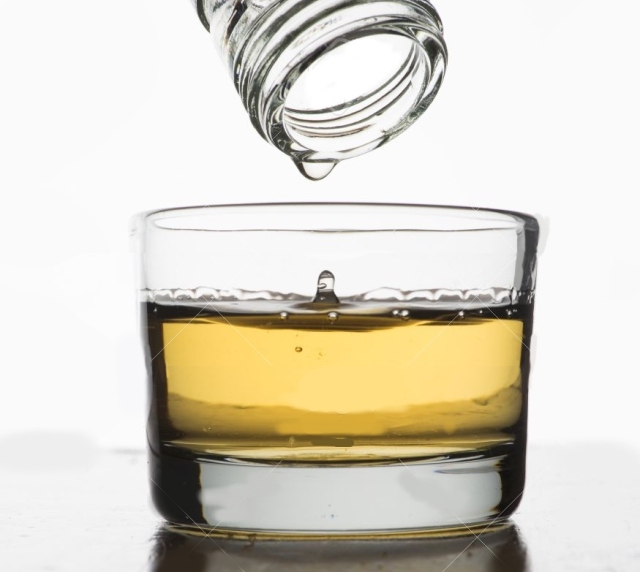Riddle
Why is there no such thing as an empty bottle of Scotch?

I prefer David or Dave, but students uncomfortable with first names can call me Professor or Mister Hodges. (Sir Dave and Dave-a-lot are popular alternatives.) My ESL students' charming solution, Mister David, is my favorite by far.

In class today, we talked about the grammatical errors in writing. Starting with a riddle about Scotch. (The difference between an empty bottle of Scotch vs an empty Scotch bottle.) The riddle helped me think about my writing, and to be careful how I use grammar.
1. She hit me with an empty bottle of Scotch.
2. She hit me with an empty Scotch bottle.
3. She hit me with a bottle that had been emptied of Scotch.
4. She hit me with a bottle from which all the Scotch had been emptied.
5. She hit me with a bottle emptied of Scotch.
6. She hit me with a bottle she had emptied of Scotch.
Only one is wrong. The rest are logically similar but grammatically different and variously nuanced. Three of them seem logically identical but not as interesting as the only version that suggests that she was drunk when she hit me.
Number 6 doesn’t say she was drunk. It doesn’t say she drank the Scotch. But it certainly hints that she did so. Consider the equally possible and much more straightforward alternative:
She emptied the Scotch bottle into a glass and drank it down. Then she hit me with the empty bottle.
It’s clear. It communicates the facts. But it is NEARLY as effective as collaborating with the reader. The trick to REALLY effective writing is making the reader do THE RIGHT AMOUNT OF WORK.
“She hit me with a bottle she had emptied of Scotch” doesn’t just communicate facts; it lures the reader into the insinuation that she drank the Scotch and was therefore more likely to strike me with the bottle. Readers who COME TO THEIR OWN CONCLUSIONS (conclusions you have carefully set for them like traps) are much more likely to find your work persuasive.
LikeLike